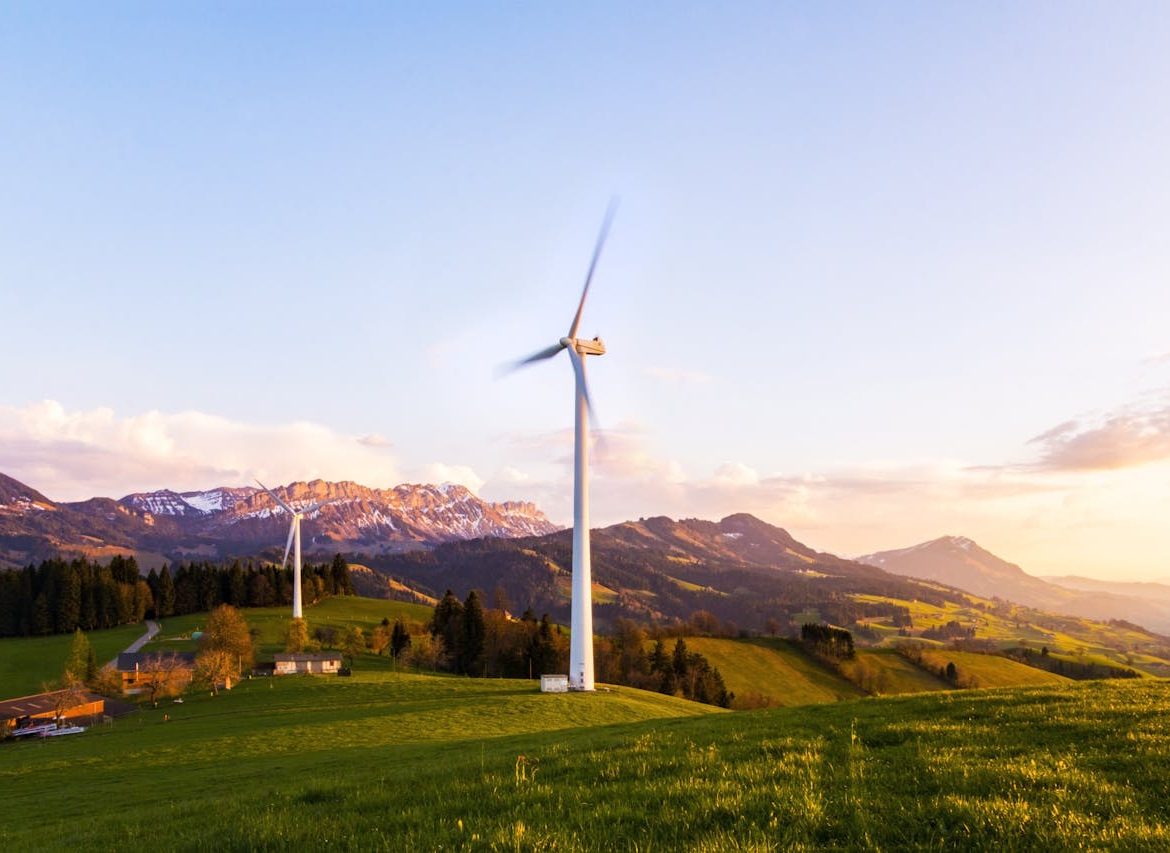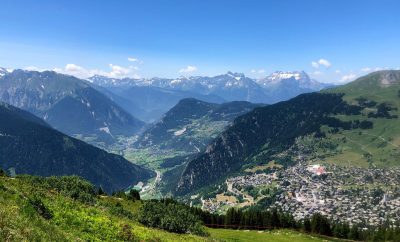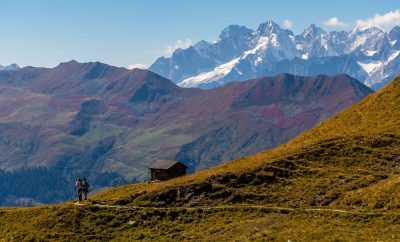Sustainable Living in the Alps
Living sustainably in the Alps is slowly but surely gaining momentum as this unique mountainous region presents both challenges and opportunities for eco-friendly practices. With climate change becoming a pressing issue, Alpine communities and governments are stepping up their efforts to balance environmental preservation with the well-being of local populations.
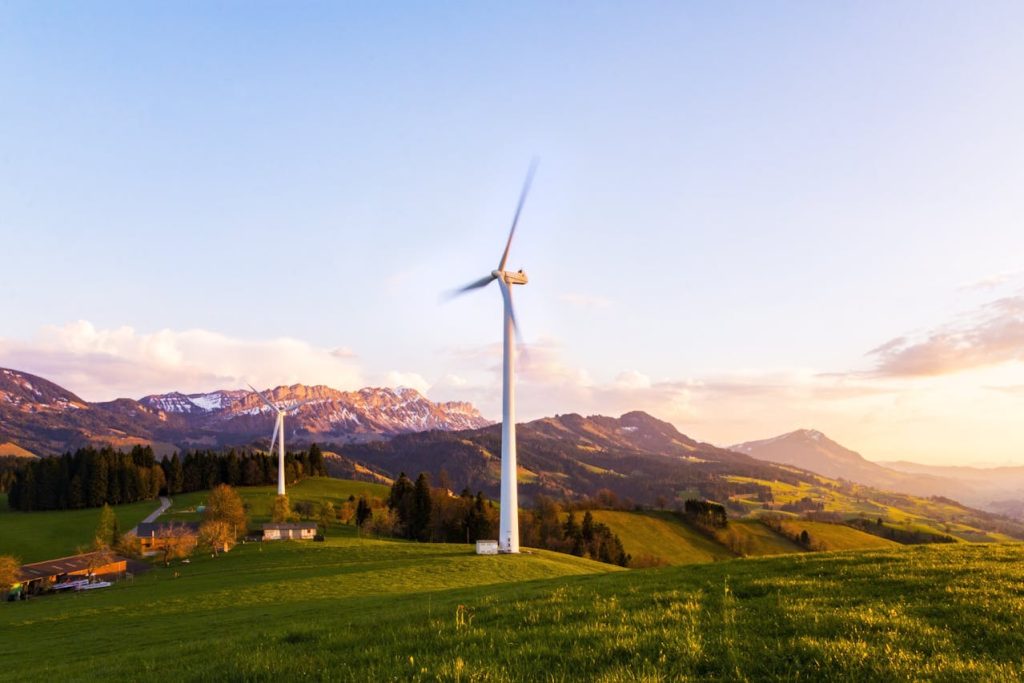
By revisiting traditional practices and embracing innovative technologies, we can preserve the Alps’ natural beauty and biodiversity while supporting the people who call them home.
Embracing Renewable Energy and Conservation
The Alps are becoming a hub for renewable energy experiments and conservation initiatives, especially given their sensitivity to climate change impacts. The melting of glaciers and unpredictable weather patterns pose significant risks to the Alpine way of life, which underlines the necessity for sustainable living solutions.
Local efforts are harnessing natural resources such as solar, wind, and hydro power, contributing to the region’s energy self-sufficiency and economic stability.
Sustainable Tourism and Agriculture
Sustainable tourism and agriculture are becoming increasingly important in the Alps as part of a sustainable economic model. The focus is on creating practices that minimize environmental footprints, enhance the vitality of Alpine ecosystems, and provide authentic experiences for visitors.
Efforts in sustainable development include community-led initiatives that are vital to the long-term health of both the environment and local industries. This approach is a great example of resilience and adaptability for mountain regions worldwide.
Understanding Sustainable Living
Sustainable living is all about maintaining ecological balance, using resources responsibly, and ensuring the well-being of present and future generations.
It all starts with recognizing the intrinsic value of nature and involves adopting lifestyles and practices that respect the delicate balance of Alpine ecosystems. These sustainable lifestyles call for a conservative use of resources and prioritizing renewable options to support the Alpine environment and its unique biodiversity.
The Alps are a symbol of biodiversity, so conservation is a necessary initiative in this region. Initiatives like the Alpine Convention reflect a commitment to protecting this critical environment. Strategic measures enable nature and humanity to coexist through sustainable tourism models, preserving idyllic landscapes against the pressures of contemporary development.
Energy efficiency and resource conservation are the pillars of sustainable living in the Alps. Conservation projects highlight renewable energy sources (such as solar, wind, and hydro power) and promote sustainable consumption behaviors. Moreover, advocacy for energy-neutral solutions reflects a movement towards a more sustainable future in Alpine regions.
Alpine Sustainability Initiatives
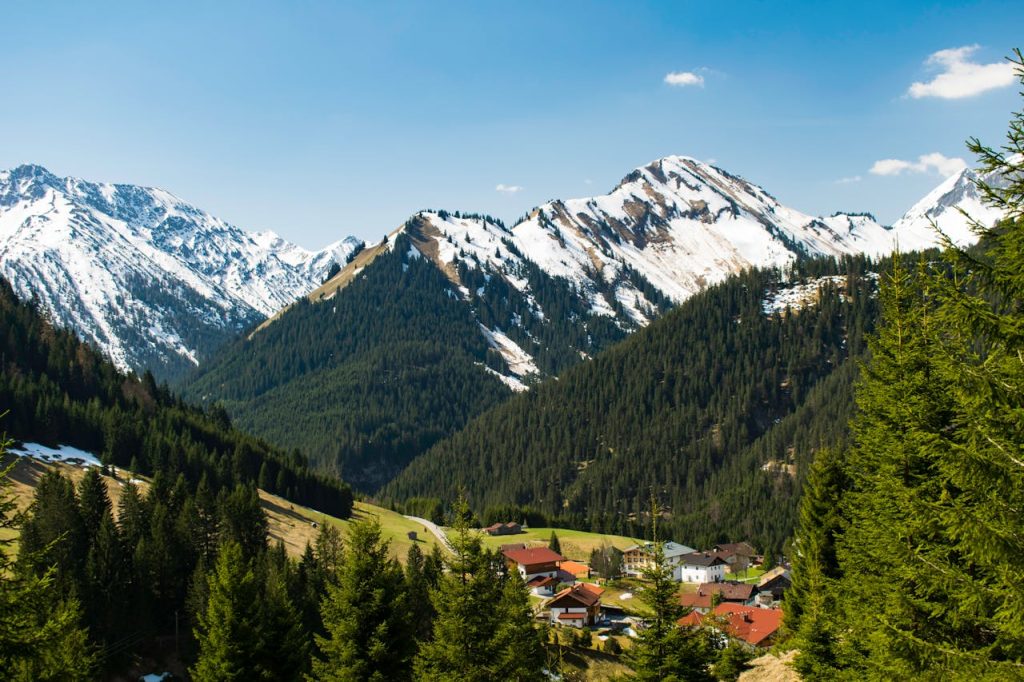
The Alps are a focal point for sustainability, with diverse initiatives tailored to climate protection, economic stability, and innovative tourism. These efforts will help conserve the region’s unique ecology while promoting environmentally responsible economic development.
Climate protection
Projects like the world’s first solar-powered lift systems in Austria (installed more than a decade ago) reduce the carbon footprint of ski resorts and push towards renewable energy sources. Continued investments in conservation practices help monitor environmental impact and preserve Alpine nature.
Sustainable economic practices
The economy of the Alpine region is closely tied to its environment, driving the adoption of sustainable economic practices. Corporations like Alps Alpine have integrated sustainability into their business models, focusing on a decarbonized and circular economy. These practices are essential in maintaining the area’s status as a sustainable destination, seeking to balance economic growth with ecological preservation.
Innovative tourism
Tourism in the Alps is evolving with innovative, sustainable strategies. The Alpine Convention’s report on measuring tourism sustainability highlights the emphasis on environmentally friendly transport and soft mobility in mountain destinations. This approach supports the tourism industry while safeguarding the region’s environmental integrity and promoting the sustainability of local communities.
Mitigating Environmental Impact
Balancing a thriving tourism sector with the need to protect the environment and preserve the delicate ecological balance is challenging. Specific initiatives focus on reducing carbon emissions, adopting sustainable agriculture and food practices, and implementing green transport solutions.
Reducing carbon emissions
Climate protection measures in the Alps aim to address carbon emissions from various sources. Initiatives promoted by the Alpine Convention include enhancing energy efficiency and expanding the use of renewable energy sources.
The Climate-neutral and climate-resilient Alps 2050 declaration is a testament to the commitment to substantially cut emissions across the region.
Sustainable agriculture and food
Agriculture in the Alps is moving towards more sustainable methods that protect the environment and support locally produced and consumed food. By shifting to practices that preserve soil health and increase biodiversity, Alpine farming contributes to environmental conservation and provides sustainable food options.
This approach helps lower the overall carbon footprint of food production and consumption.
Green transport solutions
The Alps are addressing transport-related emissions through the development and promotion of green transport solutions. Decreasing air pollution and traffic jams is central to these efforts.
The tourism industry is encouraged to use eco-friendly transport modes like electric vehicles and bicycles, and public transport infrastructure is being enhanced to reduce individual car use and support more sustainable travel within the Alpine region.
Community and Culture
Sustainable living in the Alps is a result of the combined efforts of local communities and the fostering of cultural and educational programs that promote awareness and involvement in sustainability practices.
Education and public awareness
Educational programs cultivate a deeper appreciation for the delicate balance between development and nature among both locals and visitors. Culture is essential for sustainable development, so public awareness is just as critical as academic knowledge.
Awareness initiatives highlight the dynamics of population growth and depopulation in specific areas. By addressing these dynamics, educational strategies aim to balance accessible mountain living with the preservation of remote villages, maintaining the region’s multifaceted identity.
The role of local communities
Local communities play a crucial role in translating sustainable practices into everyday life. Improving the quality of life for inhabitants requires understanding personal perceptions and the cultural and value systems of society.
Villages across the Alps engage in practices that support sustainability, such as promoting mountaineering villages, which intertwine economic, cultural, and environmental well-being.
Looking Forward
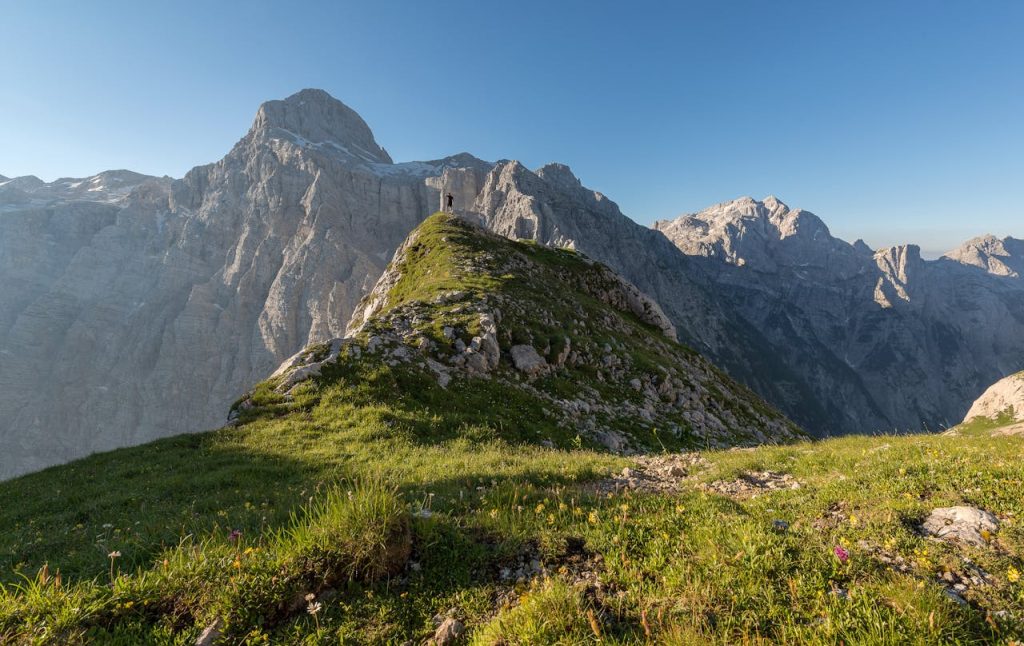
The Alps are on the brink of a transformative era with sustainability at its heart. With a focus on effective future strategies and international cooperation, it’s clear that sustainable development is not a singular effort by one country but a commitment across the entire Europe.
Future strategies and policies
Innovation is key to advancing sustainable practices in the Alps. Countries are mapping out strategies that prioritize the environment while supporting local livelihoods. Switzerland, for example, continues to lead with policies that encourage sustainable tourism, preserving the natural beauty and cultural integrity of the region.
Global relevance and collaboration
The Alps are an integral part of Europe’s ecological network. Sustainable development in this region has a domino effect, influencing countries beyond the immediate Alpine borders.
Collaborative projects, such as those introduced by CIPRA, contribute significantly to the global sustainability agenda by promoting consumption patterns and lifestyles that resonate well beyond the mountains.
Conclusion
By balancing renewable energy use, sustainable tourism, and innovative agricultural methods, the Alps set a powerful example of how to harmonize development with ecological preservation. The commitment of local communities, supported by robust educational and cultural initiatives, ensures that the region’s natural beauty and biodiversity are preserved for future generations.
As the world is showing an increasing awareness about climate change, the Alps demonstrate that proactive, collaborative, and innovative approaches can lead to sustainable solutions. By continuing to develop and implement forward-thinking strategies, the Alpine region will remain a leader in sustainable living, offering lessons and inspiration to mountainous regions and beyond.

